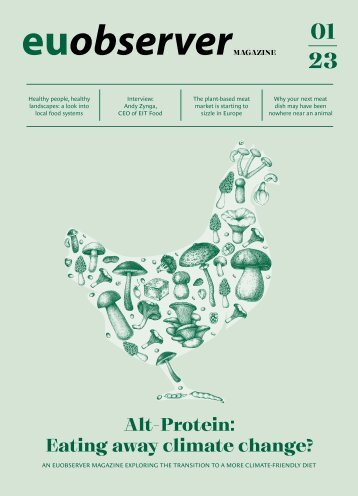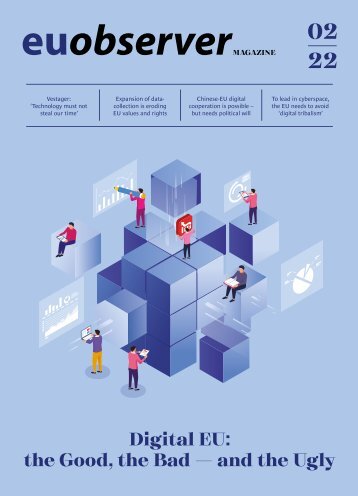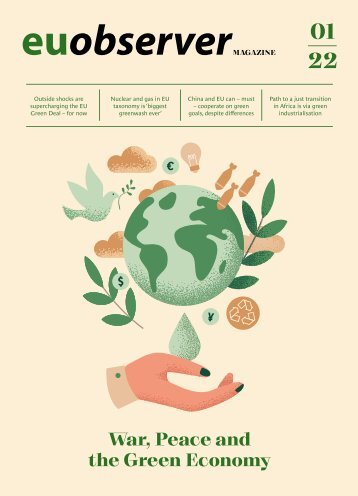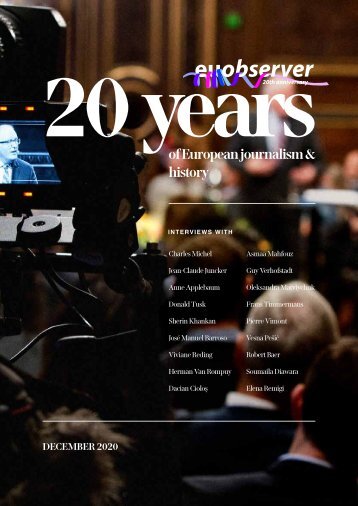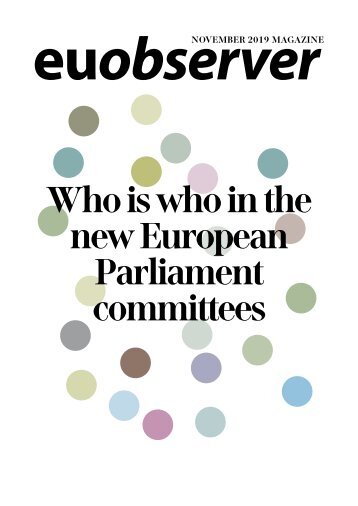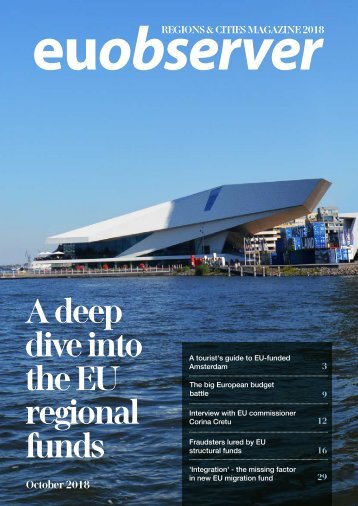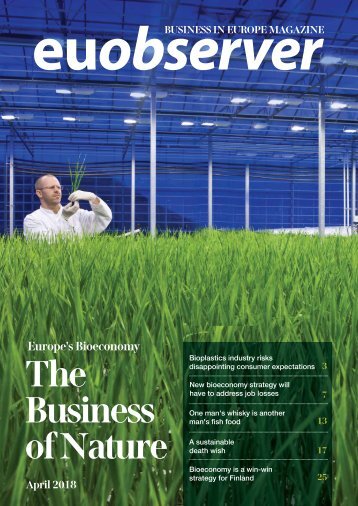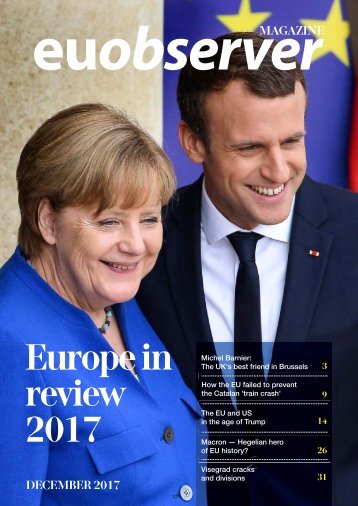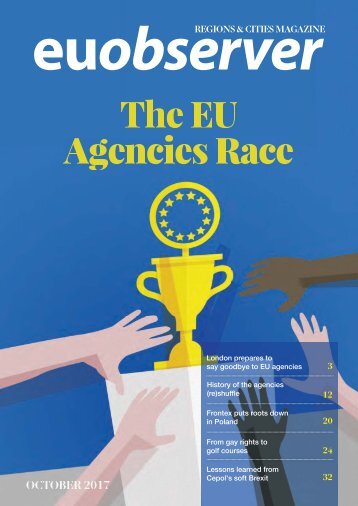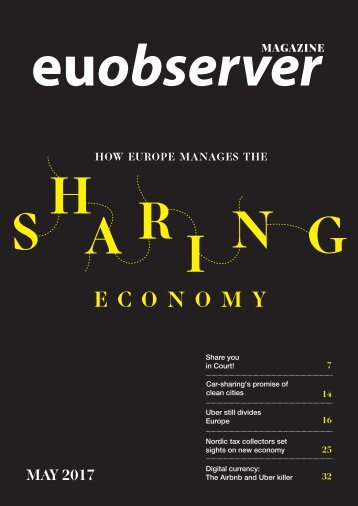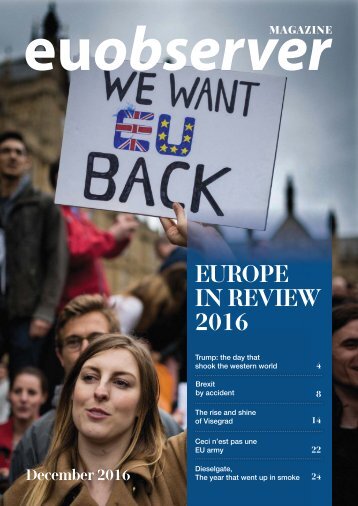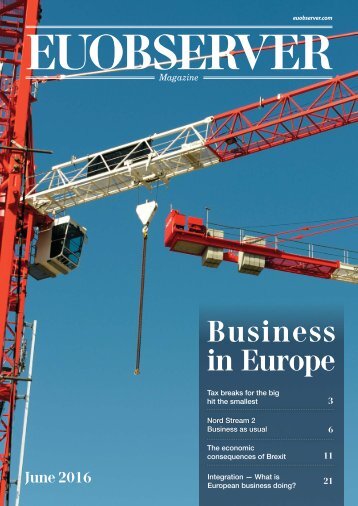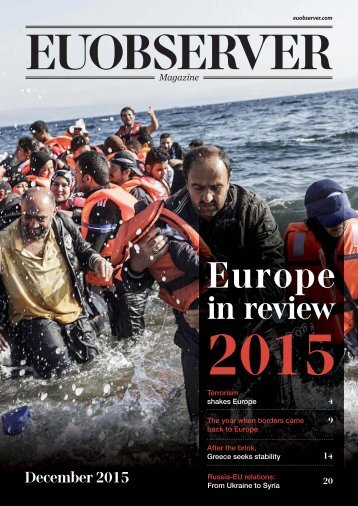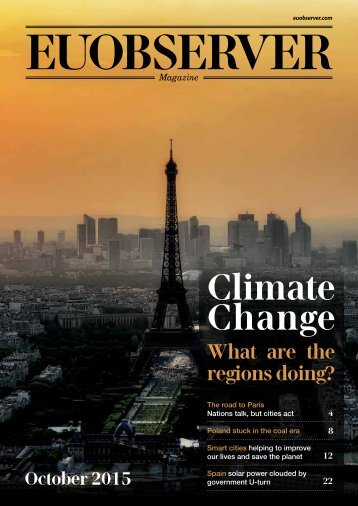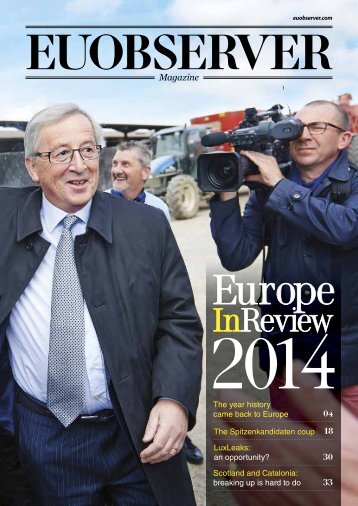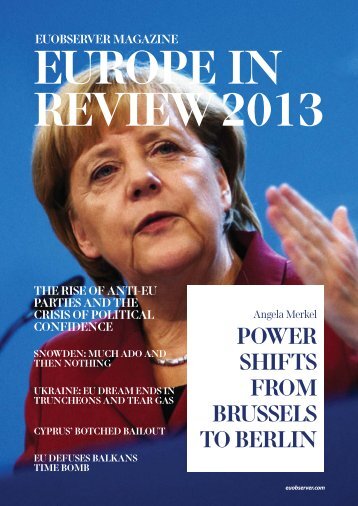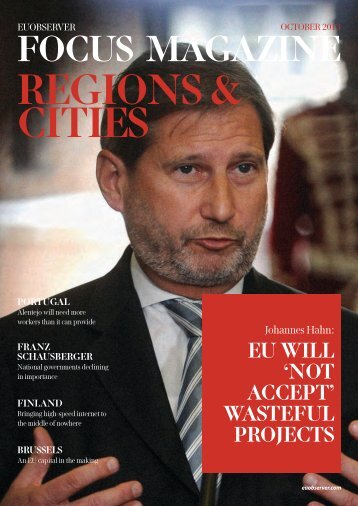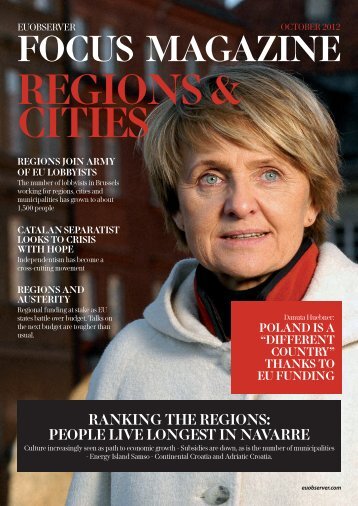Health in a post-pandemic EU
- Text
- Vaccines
- Health
- European
- Pandemic
- Diseases
- Healthcare
- Obesity
- Mrna
- Pharmaceutical
- Medicines
IN SICKNESS AND IN
IN SICKNESS AND IN HEALTH HEALTH IN A POST-PANDEMIC EU In sickness and in health The European Commissioner for Health and Food Safety on where we were and where we are going in terms of health policy and preparedness for the future. By ALIA PAPAGEORGIOU Stella Kyriakides, Member designate of the EC in charge of Health - Source: Central Audiovisual Library of the European Commission In March 2020, following a statement from the World Health Organization, Europe began to shut its borders for the first time in over 70 years. Airports like Paris Orly, Dusseldorf and Heathrow saw planes grounded, sitting idle. Little thought of airport equipment on misused laneways arose when it became apparent that we were all for now immobile and in quarantine. Schools, offices, cities and countries shut down. COVID 19 resulted in millions of deaths. Unprecedented pneumological symptoms and medical ineptness filled up hospitals, funeral parlours and cemeteries. When the pandemic hit, European Commissioner Stella Kyriakides was just one year into her term as Commissioner coming from a Council of Europe (CoE) Parliamentary Committee on social affairs, health and regional development. Her largest project focused on child sexual abuse. But even as far back as 2014 and 2015, when her term at CoE began, she would wear a pink beat cancer button on her lapel. Earlier still, in 2004, she had been President of the European Breast Cancer Coalition. “We are not where we were three years ago,” the Commissioner says, when asked about the EU’s post-pandemic situation. “But we need to remain cautious and vigilant. The virus is still with us. Our protection is now significantly better, but it is still circulating and evolving, and some uncertainty remains,” Commissioner Kyriakides said. Overall spending on healthcare-related measures that member states committed to through their national Recovery and Resilience Plans amounts to over €43bn. This is an important investment that can make a real difference and clearly shows that health is a priority in the EU. The European Union pulled together and pooled purchases of covid vaccines, which on the one hand seemed to make these vaccines more readily available, but on the other still raises questions on the methods used. The Commissioner sees this only as a strong spirit of cooperation developed among the EU’s member states during the pandemic. “We saw how much more we can do together in the area of health. This is where the project to build a strong European Health Union was born. Our Vaccines Strategy is the most evident case in point – both in its real-world impact in terms of lives saved, but also in terms of how we should move forward in tackling the pandemic and so many other challenges in the area of health,” Commissioner Kyriakides says. “In the end, we have taken our biggest challenges and made them into an opportunity to redefine EU health policy,” she says. Learning from her long – more than 27 years – of medical history and involvement in fighting cancer we asked the Commissioner about the mRNA vaccines that have resulted from this pandemic necessity and the EU’s investment. What would their role be in developments for future health challenges? “During the pandemic, we saw very clearly the important potential of mRNA technologies. A scientific and industrial endeavour made in Europe, for the world. A discovery that provided the basis for millions of the lifesaving COVD- 19 vaccines, and have proven to be adaptable to different variants of the same disease. “We should recall that the discovery of the COVID vaccines was developed on the experience of developing mRNA vaccines for cancer. Because of its adaptability, there is also a possibility that this technology could be used for personalised medicine tailored to the needs and characteristics of each patient,” the Commissioner said. A clear example of this is happening currently, with several vaccine manufacturers building on the COVID experience to conduct research into mRNA vaccines for cancer. Of course, there is still work to be done to fully ascertain the viability of mRNA technology for these purposes, but based on the COVID vaccine model, there are signs of promise. • About Alia Papageorgiou Alia Papageorgiou is President of Press Club Brussels Europe, she has worked as a journalist in Australia, Greece and Belgium covering the EU. 19
- Page 1 and 2: MAGAZINE 02 23 A ‘cure’ for obe
- Page 4: TABLE OF CONTENTS HEALTH IN A POST-
- Page 8: A ‘CURE’ FOR OBESITY HEALTH IN
- Page 12: WHO CARES? HEALTH IN A POST-PANDEMI
- Page 16: HEALTH IN A POST-PANDEMIC EU Stakeh
- Page 22: HEALTH IN A POST-PANDEMIC EU More d
- Page 26: HEALTH IN A POST-PANDEMIC EU “It
- Page 30: HEALTH IN A POST-PANDEMIC EU Stakeh
- Page 34: KEEPING AN EYE ON AI-POWERED DRUGS
- Page 38: HEALTH IN A POST-PANDEMIC EU Prescr
- Page 42: Support truly independent European
Inappropriate
Loading...
Mail this publication
Loading...
Embed
Loading...

